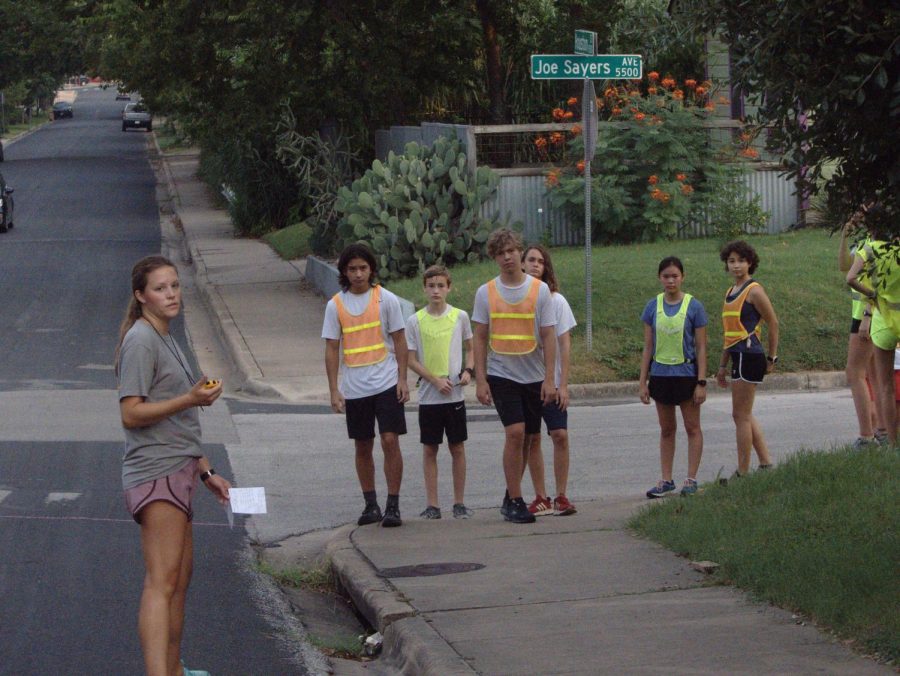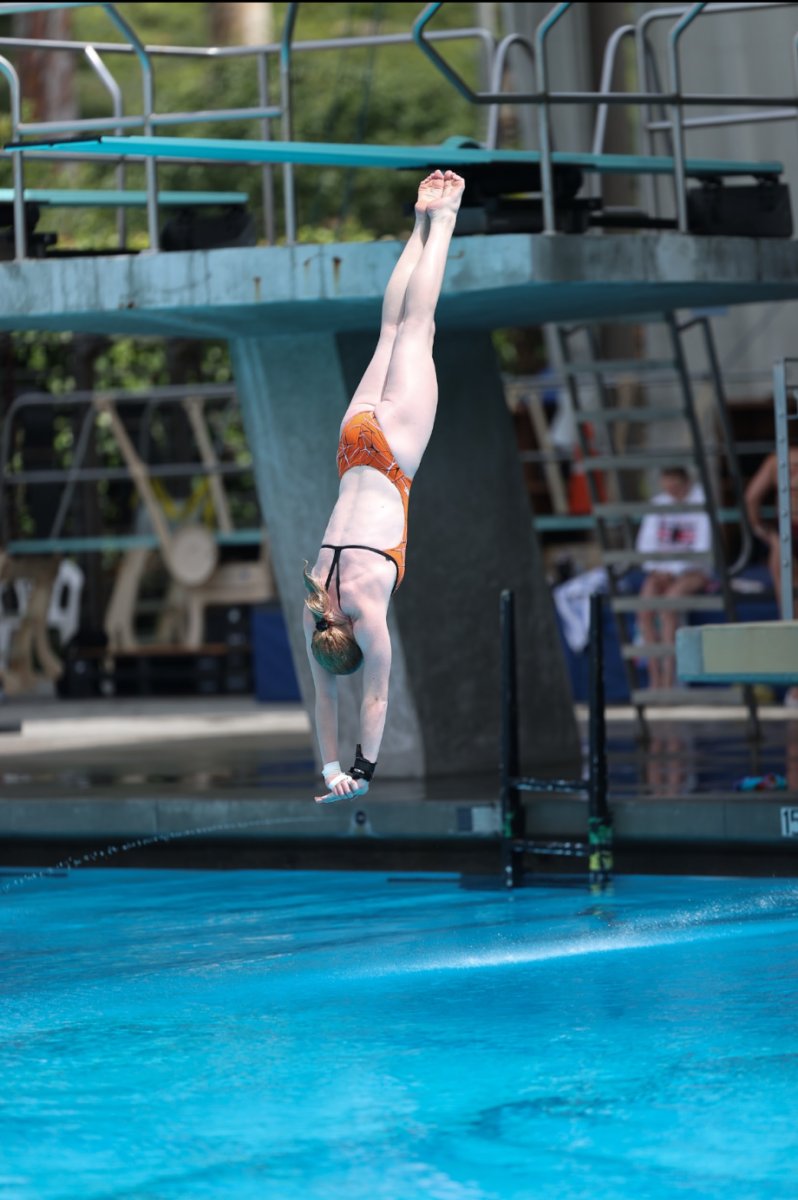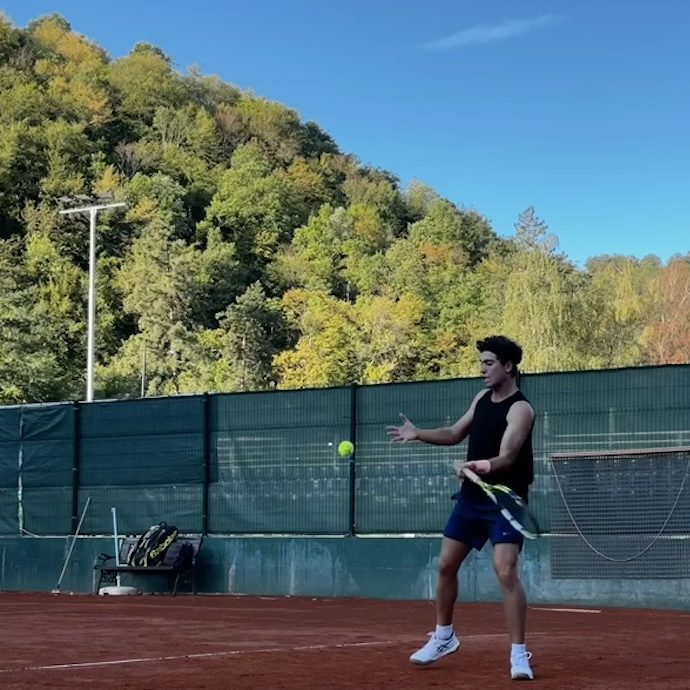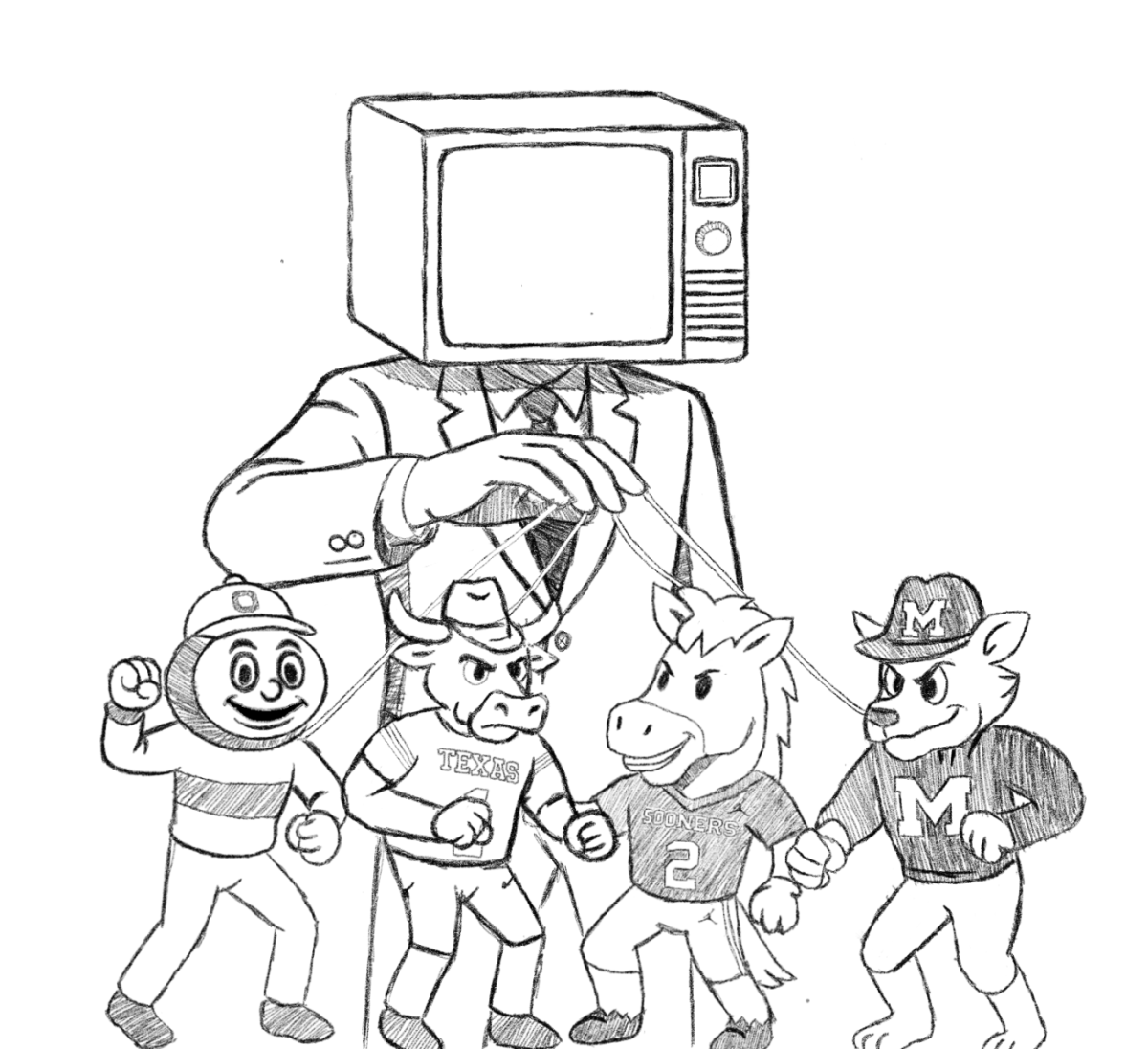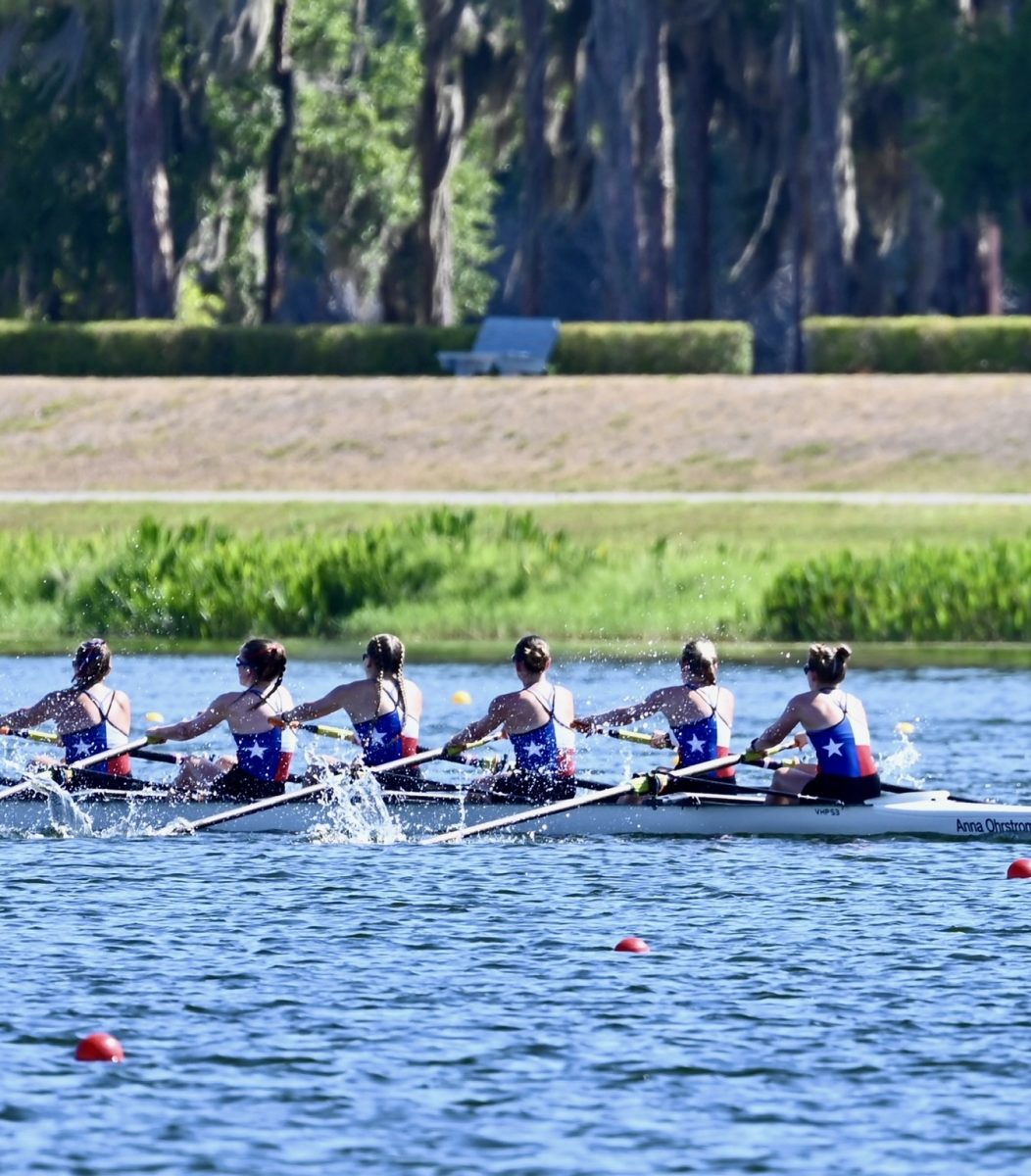Having the strength to go the distance in a cross country meet requires energy and focus. And a good coach doesn’t hurt either.
This year, math teacher Courtney Long took over coaching the cross country team and is working to push her athletes to their full potential.
“She’s strict in the way that gets people’s attention and makes sure that nobody just treats cross country like something they can do whenever they want because it does take a lot of commitment,” junior Helena Finos said.
Just because this is Coach Long’s first year coaching cross country doesn’t mean she is putting in any less time or effort to improve the team.
“It’s more work than I thought it would be only because I’m a perfectionist,” Long said. “So I beat myself up when practice doesn’t go great. Or if kids are improving, I’m like, ‘Oh, this is great, but how do I get them to improve more?’ I’m always looking to do more. But I would say overall, it’s going great. It’s meeting my expectations, or exceeding them. It’s not falling short.”
Coach Long, who previously coached swimming, stepped up to the position of Head Coach for the cross country team when their previous coach, Susan Ashton, who had been with the team for 17 years, retired at the end of last year.
“When I first heard that a new coach was going to be taking over I didn’t expect that she’d have the same kind of determination or give us as good of workouts as Coach Ashton did,” Finos said. “But we’ve been doing some pretty hard workouts, and they’ve been really challenging. But I think it’s a good challenge.”
Coach Long’s experience with cross country may be limited, but she’s no stranger to athletics. A competitive swimmer from an early age, Long knows just what goes into preparing for a meet.
“One is in water, and one is on land,” Long said. “So the coaching aspect I’ve got, it’s the whole running aspect. Swimming, I have background information, because I swam in high school. So I can know what a workout feels like, know what the injuries feel like. Whereas in running, I know how to run. I’ve run before, but competitively never raced.”
To make up for gaps in her knowledge, Coach Long draws on what she knows about coaching swimming to influence how she manages team practices and meets.
“Coach Ashton and Coach Long have very different coaching styles,” sophomore cross country runner Sydney Safarik said. “Coach Ashton was a lot more strict and tough on us, but Coach Long, I think, is doing a better job of making sure we get enough rest. She really took it slow at the beginning and we’re really building up a lot more now that meets have started up.”

“She always has music, which I love,” Finos said. “And I think the team really appreciates that too. Because otherwise it’s just, you know, pretty silent.”
Music isn’t the only noise Coach Long has introduced. She’s big on team spirit and encouraging the team to cheer one another on.
“Coach Long has been doing this thing where she rewards whoever cheers the loudest,” Finos said. “And you know, everybody applauds. So I really like that, because I think it brings a good aspect of team spirit.”
Long’s activities not only provide motivation for athletes, but also help strengthen bonds between teammates.
“It’s a team sport,” Safarik said. “So there’s sort of this camaraderie from showing up and running every day.”
Positivity towards the sport and other athletes helps bring joy to strenuous and difficult practices.
“I feel like in cross country, people sometimes forget that it’s supposed to be fun,” Finos said. “Because you know, a lot of people when they hear running, they don’t think of fun. It’s always a challenge, running is always going to be a challenge. But I think when you’re positive, and you have that type of spirit, especially with a group of people that you all get along with, it makes it a little easier when you’re running out there to hear somebody chanting for you.”
Long understands that even those who compete in solitary sports like swimming and cross country benefit from a supportive team community — it’s what keeps them going, all the way to the finish line.
“I love it when athletes help other athletes or cheer for their teammates,” Long said. “At our first meet, I was crying watching them all run, cheer each other on and come across the finish line. It was so great. It was fantastic.”


